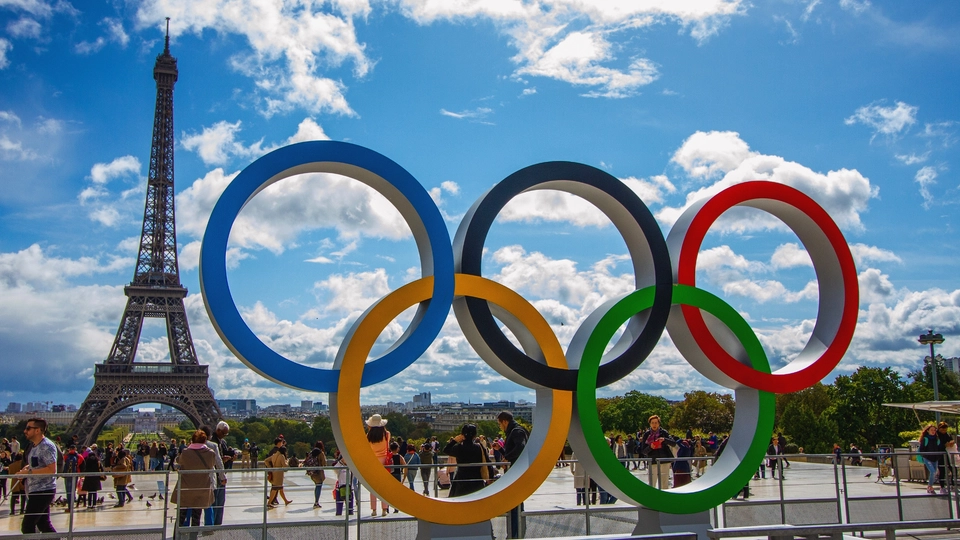Paris 2024: A New Era of Sustainable Olympics

The Paris 2024 Olympics Games are set to be the most sustainable and innovative yet. The organizers pledge to halve the Games’ carbon footprint compared to previous editions through initiatives like low-carbon structures, renewable energy, sustainable catering, and responsible procurement. However, the Games face an unprecedented challenge as they coincide with one of the hottest summers on record in Europe, testing the resilience and adaptability of the organizers’ ambitious sustainability plans.
- Advertisement -
Paris 2024 Olympics Games: Pioneering Sustainable
The Paris 2024 Summer Olympics are fast approaching, with the Opening Ceremony set to take place on July 26th in the heart of the city along the Seine river. These Games mark a significant milestone, as Paris becomes the first host city to achieve gender equality, with 50% of the athletes being women. The organizers have also set ambitious sustainability goals, aiming to deliver the first carbon-neutral Olympic Games aligned with the Paris Agreement. To achieve this, 95% of the venues will be existing or temporary structures powered by 100% renewable energy .
The Games will feature 329 medal events across 32 sports, including new additions like breaking (breakdancing), as well as the returning sports of climbing, skateboarding, and surfing which debuted in Tokyo 2021. With a strong focus on sustainability, innovation, inclusivity, and sporting spectacle, Paris 2024 is poised to deliver a groundbreaking Olympic and Paralympic Games that will leave a lasting positive legacy.
- Advertisement -
Eco-Friendly Olympic Village Transformation
The Paris 2024 Olympic Village is a pioneering example of sustainable urban development, designed to transition into residential and office spaces after the Games conclude. Consisting of 82 buildings, the village will provide housing for 6,000 residents and offices for 6,000 employees, with a significant portion allocated for public housing to address Paris’s pressing housing crisis. The construction prioritizes eco-friendly practices, utilizing wood, recycled materials, and retrofitting existing structures to minimize the carbon footprint .
Innovative features include solar panels, rooftop gardens, outdoor air filters, and a geothermal cooling system that uses cold groundwater from deep wells to sustainably cool the athlete apartments. However, concerns have been raised about the affordability of the new homes for existing residents and the effectiveness of the natural cooling methods during potential heatwaves, with some delegations requesting air conditioning as a precautionary measure .
- Advertisement -
Mitigating Extreme Heat Risks
With temperatures in Paris expected to soar during the 2024 Summer Olympics, organizers are implementing innovative heat management strategies to ensure athlete safety and optimal performance. The geothermal cooling system in the Olympic Village circulates cool water through pipes embedded in concrete floors, maintaining stable indoor temperatures without relying on conventional air conditioning. However, some national teams, including the United States, Germany, Australia, Italy, Canada, and Britain, have decided to bring their own air conditioning units due to concerns over athlete comfort and consistency in their environments .
While this decision conflicts with the Games’ sustainability goals, it highlights the delicate balance between environmental responsibility and the need to provide optimal conditions for athletes to perform at their best. Organizers have also factored heat risks into scheduling outdoor events like the marathon and triathlon in the early morning and have contingency plans to reschedule based on daily heat and humidity levels. Additionally, athletes are being advised to acclimatize to the heat through training, implement hydration plans, and utilize pre-cooling strategies during warm-ups to minimize the impact of extreme temperatures on their health and performance .
Iconic Venues, Green Innovation
The Paris 2024 Olympics will showcase innovative venues that blend iconic landmarks with sustainability. The opening ceremony will take place along the Seine River, marking the first time in Olympic history that the event will be held outside a stadium. This unprecedented move aligns with the organizers’ motto of “Games Wide Open” and will allow spectators to witness athletes parading past famous Parisian monuments .
Other notable venues include the Grand Palais, which will host fencing and taekwondo events, and the Eiffel Tower, which will serve as a backdrop for beach volleyball. In a significant environmental effort, the city has undertaken a massive clean-up of the Seine River to make it swimmable for the first time in over a century, preparing it to host the marathon swimming and triathlon events. This initiative not only supports the Games but also leaves a lasting positive impact on Paris’s urban environment .
Tech-Driven Sustainable Design
The Paris 2024 Olympics are leveraging cutting-edge technology and innovative design principles to minimize their environmental impact. A key focus is on clean design, which prioritizes energy efficiency and sustainable resource use. The organizers are implementing smart meters and AI-powered systems to optimize energy consumption across venues. Additionally, the Games are embracing circular design principles, with 95% of venues being existing or temporary structures to reduce waste .
Biomimicry concepts are being applied in the Olympic Village’s cooling systems, which use geothermal energy to maintain comfortable temperatures without traditional air conditioning. These technological and design innovations are crucial in the organizers’ efforts to halve the Games’ carbon footprint compared to previous editions, setting a new standard for sustainable large-scale sporting events .
Setting New Olympic Standards
The Paris 2024 Olympic and Paralympic Games are poised to leave a lasting legacy that extends far beyond the sporting event itself. By prioritizing sustainability, innovation, and social impact, the organizers aim to set a new standard for future Olympic Games. The legacy includes tangible elements like the transformation of the Olympic Village into much-needed housing and office spaces, as well as intangible benefits such as increased awareness of disability issues and promotion of physical activity for public health .
The Games are expected to have a significant economic impact, with projections indicating benefits lasting until 2034. Moreover, Paris 2024’s commitment to sustainability, including the ambitious goal of halving the carbon footprint compared to previous Games, serves as a model for large-scale event organization in the face of climate challenges . This holistic approach to legacy planning demonstrates how major sporting events can be catalysts for positive societal change and environmental progress.
Sources:
- Paris 2024 Olympics – Latest News, Schedules & Results
- Five Ways Paris 2024 is Delivering More Sustainable Games
- The 2024 Paris Olympics: Sustainability and Innovation in Action
- What Will Happen to the Olympic Village After the Paris 2024 Games Are Over?
- Athletes Sound Warning About Extreme Heat at Summer Olympics
- Paris 2024: The Sprint for Sustainable Buildings
- How to Beat the Heat at Paris 2024
- New Report Warns of Heat Danger at Paris Olympics
- Paris Ambition for Greenest Games Faces Athlete Challenge
- McKinsey on Sustainability at Paris 2024
- Technological Innovations at Paris 2024
- Report: Heat Danger at Paris Olympics
- Paris 2024 Sustainability Plan
- Economic Impact of Paris 2024







